

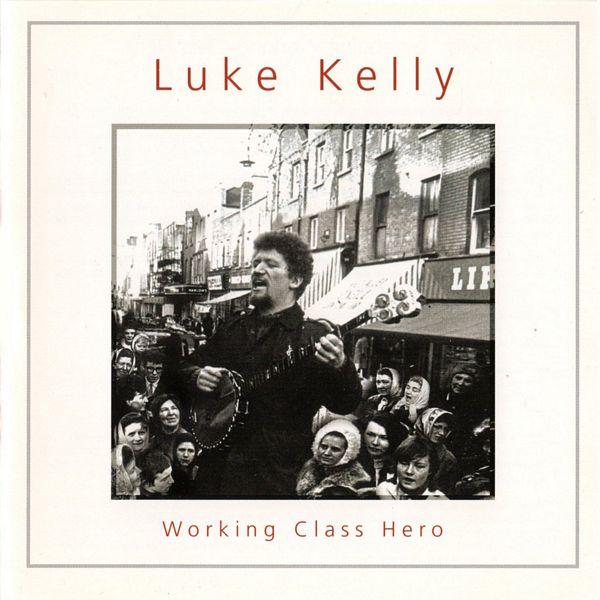 |
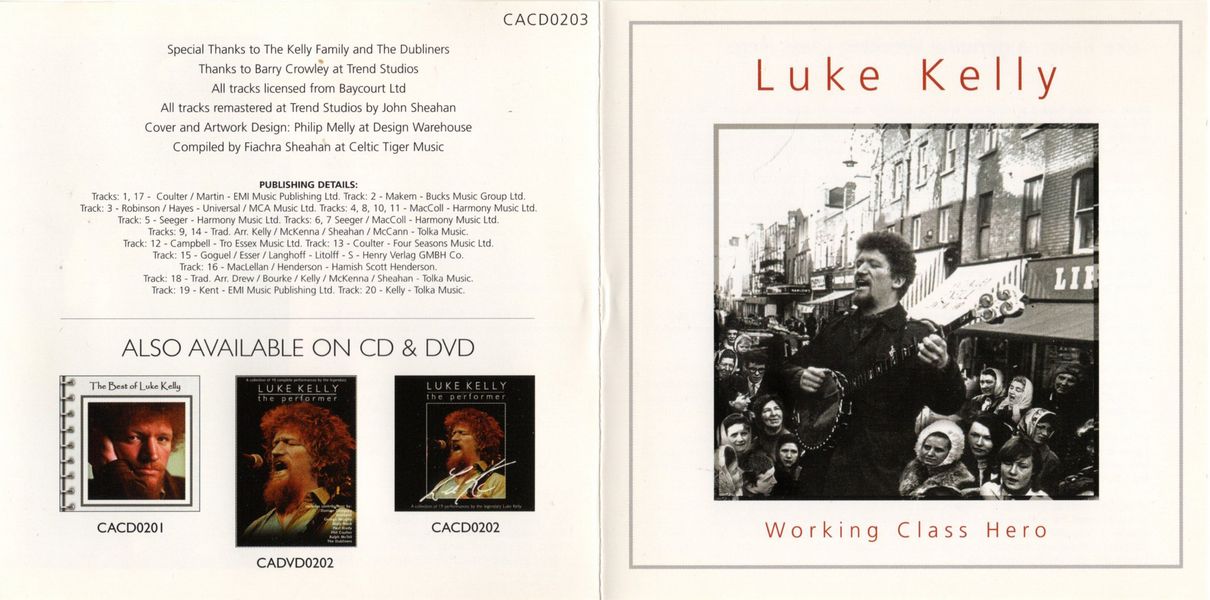
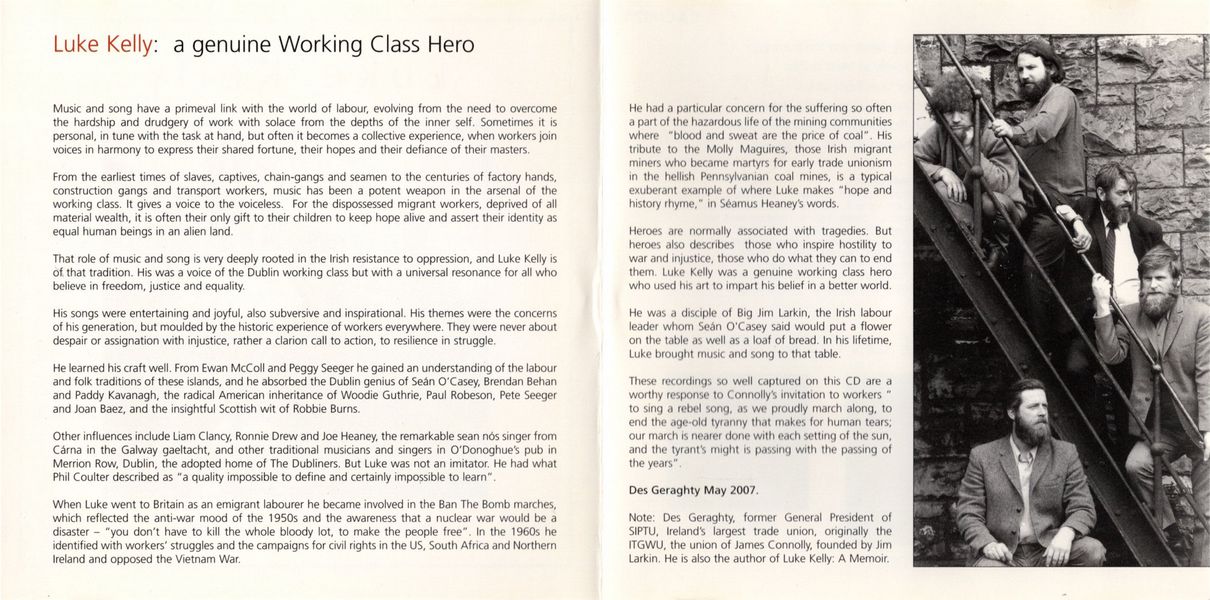
|
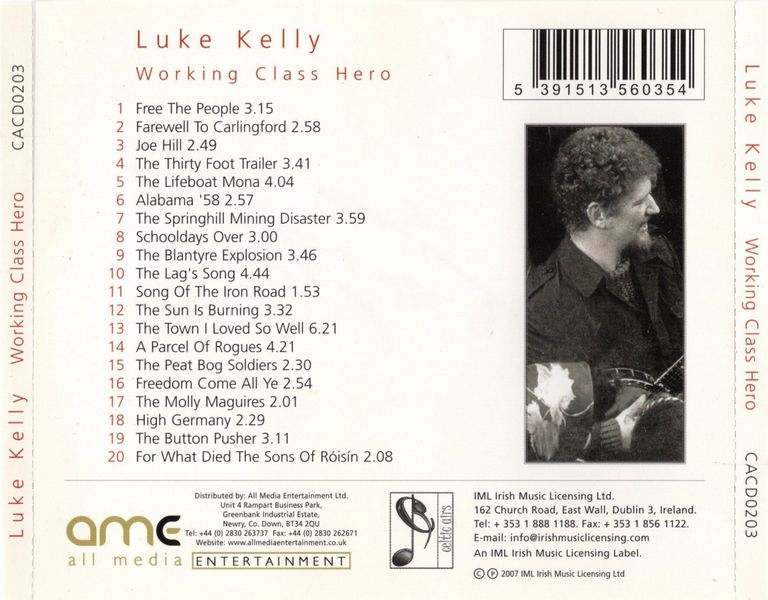
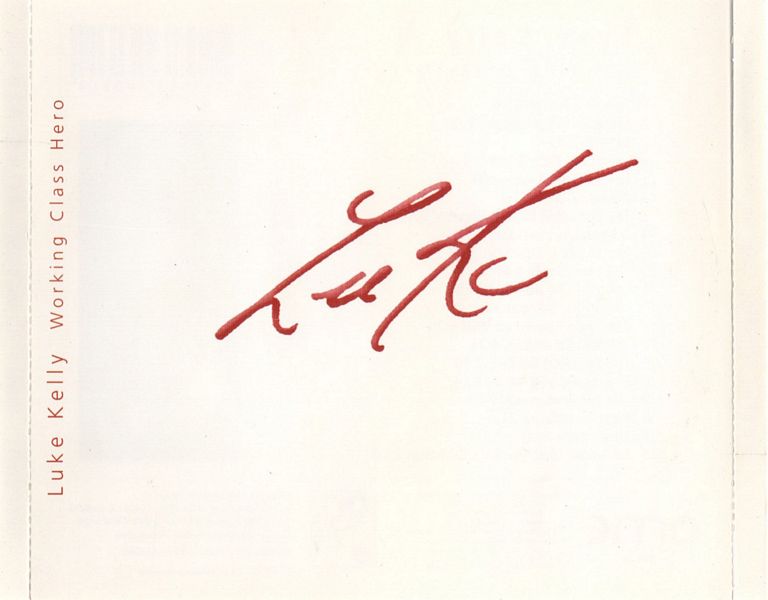
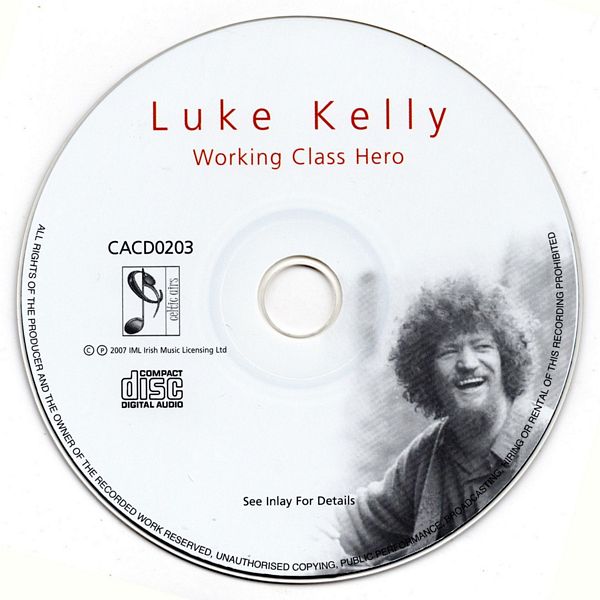
|
Sleeve Notes
Luke Kelly: a genuine Working Class Hero
Music and song have a primeval link with the world of labour, evolving from the need to overcome the hardship and drudgery of work with solace from the depths of the inner self. Sometimes it is personal, in tune with the task at hand, but often it becomes a collective experience, when workers join voices in harmony to express their shared fortune, their hopes and their defiance of their masters.
From the earliest times of slaves, captives, chain-gangs and seamen to the centuries of factory hands, construction gangs and transport workers, music has been a potent weapon in the arsenal of the working class. It gives a voice to the voiceless. For the dispossessed migrant workers, deprived of all material wealth, it is often their only gift to their children to keep hope alive and assert their identity as equal human beings in an alien land.
That role of music and song is very deeply rooted in the Irish resistance to oppression, and Luke Kelly is of that tradition. His was a voice of the Dublin working class but with a universal resonance for all who believe in freedom, justice and equality
His songs were entertaining and joyful, also subversive and inspirational. His themes were the concerns of his generation, but moulded by the historic experience of workers everywhere. They were never about despair or assignation with injustice, rather a clarion call to action, to resilience in struggle.
He learned his craft well. From Ewan McColl and Peggy Seeger he gained an understanding of the labour and folk traditions of these islands, and he absorbed the Dublin genius of Seán O'Casey, Brendan Behan and Paddy Kavanagh, the radical American inheritance of Woodie Guthrie. Paul Robeson, Pete Seeger and Joan Baez, and the insightful Scottish wit of Robbie Burns.
Other influences include Liam Clancy, Ronnie Drew and Joe Heaney, the remarkable Sean-nós singer from Cárna in the Galway gaeltacht, and other traditional musicians and singers in O'Donoghues pub in Merrion Row. Dublin, the adopted home of The Dubliners. But Luke was not an imitator. He had what Phil Coulter described as "a quality impossible to define and certainly impossible to learn".
When Luke went to Britain as an emigrant labourer he became involved in the Ban The Bomb which reflected the anti-war mood of the 1950s and the awareness that a nuclear war would — "you don't have to kill the whole bloody lot, to make the people free". In the 1960s he identified with workers' struggles and the campaigns for civil rights in the US, South Africa and Northern Ireland and opposed the Vietnam War.
He had a particular concern for the suffering so often a part of the hazardous life of the mining communities where "blood and sweat are the price of coal". His tribute to the Molly Maguires, those Irish migrant miners who became martyrs for early trade unionism in the hellish Pennsylvanian coal mines, is a typical exuberant example of where Luke makes "hope and history rhyme," in Seamus Heaney's words.
Heroes are normally associated with tragedies. But heroes also describes those who inspire hostility to war and injustice, those who do what they can to end them. Luke Kelly was a genuine working class hero who used his art to impart his belief in a better world.
He was a disciple of Big Jim Larkin, the Irish labour leader whom Seán O'Casey said would put a flower on the table as well as a loaf of bread. In his lifetime. Luke brought music and song to that table.
These recordings so well captured on this CD are a worthy response to Connolly's invitation to workers "to sing a rebel song, as we proudly march along, to end the age-old tyranny that makes for human tears; our march is nearer done with each setting of the sun, and the tyrants might is passing with the passing of the years".
Des Geraghty May 2007.
Note: Des Geraghty, former General President of SIPTU, Ireland's largest trade union, originally the ITGWU. the union of James Connolly, founded by Jim Larkin. He is also the author of Luke Kelly: A Memoir.